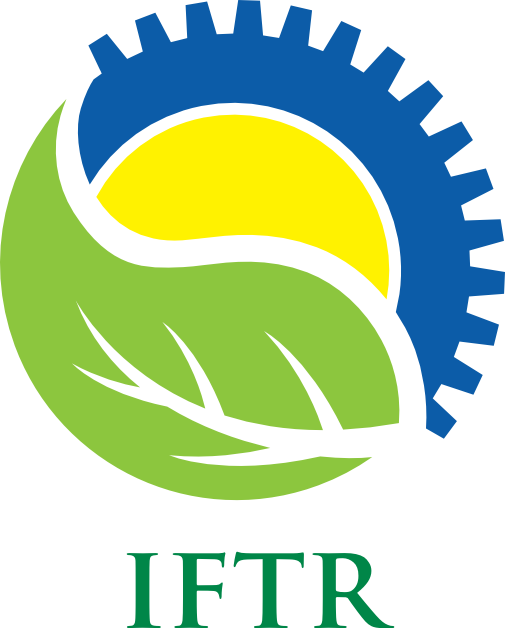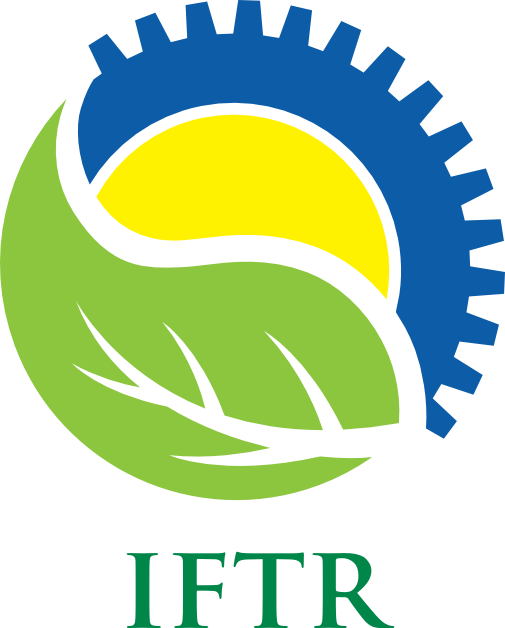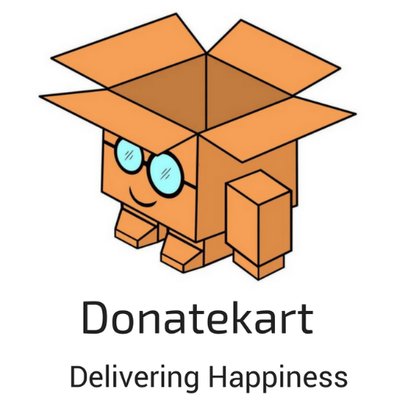 Indigenous and Frontier Technology Research Centre IFTR
Indigenous and Frontier Technology Research Centre IFTR
Design, Develop and Disseminate technologies for the masses





Media Partner

National Conference on
Ecological Approaches towards Diet for A Green Planet (EADGP)
20 & 21st, November 2015
Organized by: BERAS India
In collaboration with
Biodynamic Association of India (BDAI)
Venue: Pallotti Institute of Lay Leadership Animation &
Research (PILLAR), Pillar Salai, Madurai,
Tamil Nadu - 625 019, India
BACKGROUND
The concept of food security is defined as including both physical and economic access to food that meets people's dietary needs as well as their food preferences. Food security is built on three pillars: Food availability: sufficient quantities of food available on a consistent basis, Food access: having sufficient resources to obtain appropriate foods for a nutritious diet, and Food use: appropriate use based on knowledge of basic nutrition and care, as well as adequate water and sanitation.
While food security is important to provide solutions for equitable distribution of food, there is a growing need and expectation to provide quality food to the growing world population. Organic production system integrates "cultural, biological, and mechanical practices that foster cycling of resources, promote ecological balance, and conserve biodiversity."To achieve this there is a need build public understanding of the interrelationship between farming, food, health, education, and economic development by helping communities achieve food security while empowering the farming community.
Soil plays a vital role in the earth ecosystem. Without soil human life would be impossible. Soil provide plants with necessary nutrients to grow through which quality food is achieved, filters rain waters and regulate the discharge of excess rain water. A healthy soil provides health growth of the crop without any pests and diseases to achieve less use of external agro chemical inputs.
This conference is organized to discuss the needs, requirements, experiences and processes in implementing Organic agriculture especially introducing the various concepts such as Ecological Regenerative Agriculture, Learning Centers for Sustainable Food Societies and the Diet for a Green Planet concepts developed based on rigorous scientific investigation, demonstration and implementation by BERAS International Foundation, Sweden.
Ecological Regenerative Agriculture (ERA) is based on the ecological principles of renewable resources, recycling of nutrients and biodiversity which make the farm part of the ecosystem. ERA integrates organic crop production and animal husbandry. The number of animals is balanced with the available farm land. Combined with the cultivation of leguminous grassland as part of the crop rotation the farm can reach a high degree of self-sufficiency in fodder and manures. ERA has the potential to lower the leaching of nitrogen and phosphorous to the environment through recirculation of nutrients, reduce greenhouse gas emissions through low input of external resources and carbon sinks, improve soil fertility and natural nitrogen reserves through increased legume cultivation, avoid synthetic pesticides and enhance the natural control of pests through crop rotations, enhance biodiversity through a diverse cropping system and low-input farming methods.
Sustainable Food Societies (SFS) are examples of local food clusters that are socially just, environmentally friendly and economically viable. They involve all actors in the food chain – from farmers to consumers. Farms and gardens that practice ecological regenerative agriculture (ERA) are central actors. These are connected to other actors, such as processors, wholesalers, distributors and consumers in local market clusters. Knowledge exchange is achieved through the ‘triple helix’ involving business sector, authorities, NGOs, research and education. This creates favorable conditions for environmentally friendly food production, sustainable lifestyles and viable communities.
Diet for a Green Planet (DGP) is based on providing tasty, attractive and healthy, organically produced food from an ERA farm, or at least be organically produced. DGP comprises fresh healthy and genuine seasonal food. DGP lays stress on locally produced and locally consumed food within a specific area where the sender is evident and that is available in the local market. In line with the traditional Indian wisdom, the food waste generated should be fed to the farm associated animals or for biogas production that contributes to a more healthy climate and environment.
Together with Ecological Regenerative Agriculture and Sustainable Food Societies the Diet for a Green Planet concept has the potential to influence all aspects and actors of the food chain – from field to plate – in a direction that will contribute to a healthy diet and saving the Environment.
Who May Participate?
The conference is open to individuals, farmers, traders, retailers, consumers, agriculturists, enthusiasts, students, social scientists, consultants, NGOs, Civil society organizations in order to promote organic agriculture and societies.
REGISTRATION: Opens on 25th October, 2015
FEES AND ACCOMMODATION
|
Registration Fees (Rs.)* |
|
|
Before 10th November, 2015 |
On the spot registration |
|
500 |
900 |
*Participants will be provided all facilities including shared accommodation and food for two days in the Venue itself.
MODE OF PAYMENT
All payments should be made by bank transfer / Cheques
Account Name : BERAS INDIA
Account No : 137101000026260
Bank Name : Indian Overseas Bank (IOB)
Branch Code : 1371
Branch Address : Kadavur (post), Karur District 621311
IFSC Code : IOBA0001371
Please include the bank transaction ID and other details in the appropriate column in the registration form.
Exhibition and Advertisement
All participating NGOs, Voluntary Organizations, individuals and farmers can display their products, books, journals, etc at the conference venue. Space for exhibition should be booked in advance. For details, please contact the Organizing Committee for further details. Rs.1000/stall will be charged for this additional facility.
About BERAS / BERAS India
BERAS (Building Ecological Regenerative Agriculture and Societies) started as a partnership based on EU projects aiming to save the environment of the Baltic Sea in the north of Europe. The work of BERAS consists of three main components; Ecological regenerative Agriculture (ERA), Sustainable Food Societies (SFS) and Diet for a Green Planet (DGP). The goal is to transform the agriculture and food systems to be a part of the solution instead of the problem. Since these concepts are applicable on societies all over the world BERAS International Foundation was established in 2013.
In October 2014 BERAS India joined BERAS International Foundation, Sweden and the founding members/organizations are listed below.
- 1. ADSIL, T. Kallupatti
- 2. Ahimsa, Vaiyampatti
- 3. Annai Lea Community College- School of Biodynamic Farming,
- 4. Biodynamic Association of India
- 5. CIRHEP, Nilakottai
- 6. Eco Pro, Auroville
- 7. Dr. David Ravindran, Gandhigram Rural University, Dindugul
- 8. Inba Seva Sangam, Sevapur (Lead Partner)
- 9. Karmuhil, T. Kallupatti
- 10. Kudumbam, Trichirappalli
- 11. Muhil Health Centre, T. Kallupatti
- 12. Dr. Regina Sharmila Dass, Pondichery University, Pondicherry
- Dr. K. Perumal, Shri AMM Murugappa Chettiar Research Centre, Chennai
- 14. Tamil Nadu Tree Growers Association, Madurai District
- 15. Mr. Mohammed Deen, LEHO,Ladkha, Jammu & Kashmir
- 16. Progressive Farmers Mr. R. Jayachandran & Mr. Mahesh L Melvin
PROGRAMME SCHEDULE
|
20.11.2015 |
Day 1 (Friday) |
|
09.00 - 10.00 |
Inauguration |
|
10.00 - 10.15 |
Tea |
|
10.15 - 01.15 |
Session I – Ecological Regenerative Agriculture (ERA) |
|
Lecture 1 |
Significance of ERA farming / Sustainable Agriculture |
|
Lecture 2 |
Effort of farmers in developing ERA farm |
|
Lecture 3 |
Experience sharing of organic farmers -Profitability |
|
Lecture 4 |
Role of NGOs in implementing ERA Farming |
|
Lecture 5 |
Research and Development in ERA Farming |
|
01.15- 02.00 |
Lunch |
|
02.00 - 05.15 |
Session II – Diet for a Green Planet (DGP) |
|
Lecture 1 |
Influence of regional / seasonal crops on local diets |
|
Lecture 2 |
Role of minor millets and pulses on dietary system |
|
03.30 - 03.45 |
Tea |
|
Lecture 3 |
Promotional activities for regional diets |
|
Lecture 4 |
Value addition of regional crop products |
|
05.30 – 06.30 |
Experience Sharing by Farmers |
|
07.00 - 08.30 |
Cultural show + Banquet Dinner |
|
21.11.2015 |
Day 2 (Saturday) |
|
09.30 - 03.30 |
Session III – Sustainable Food Societies (SFS) |
|
Lecture 1 |
Factors influencing SFS / Elements needed to establish SFS |
|
Lecture 2 |
ERA farming in establishing SFS |
|
11.00-11.30 |
Tea |
|
Lecture 3 |
Natural and Organic foods (ERA / DGP) in traditional medicine for SFS |
|
Lecture 4 |
Role of Processors / retailers / wholesalers in SFS |
|
01.00 - 02.00 |
Lunch |
|
Lecture 5 |
ERA, DGP, and Siddha Medicine in SFS |
|
Lecture 6 |
Developing SFS implementation strategies |
|
03.30 - 03.45 |
Tea |
|
03.45 - 04.30 |
Plenary Discussions & Recommendations |
|
04.30 - 05.00 |
Valedictory |
NATIONAL CONFERENCE ON EADGP REGISTRATION FORM
Full Name :
Occupation :
Organization :
Mailing Address :
Tel : Email:
( ) I wish to attend the conference
( ) I wish to participate in the organic farm tour
(3rd day on Payment Basis around Rs.500/day. Tour will be organized based on the minimum number of registration)
Payment Details
( ) NEFT/RGTF Transfer
( ) Cheque/DD payment
Cheque/DD/Transaction No. :
Bank Name :
Branch Name :
Date of Transaction/cheque/DD :
Signature :
Date
